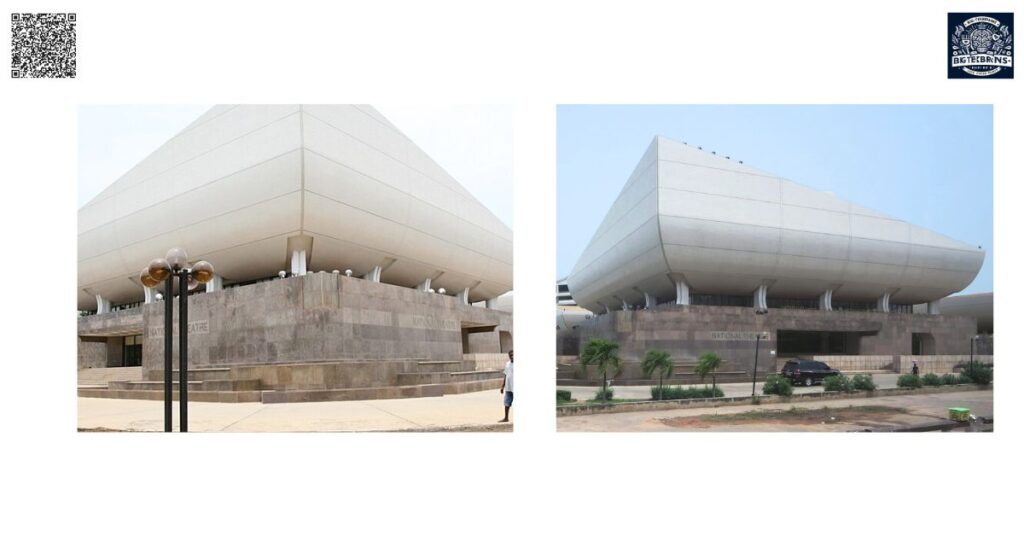Excerpt
The National Theatre of Ghana stands as a beacon of the nation’s rich cultural heritage, serving as a premier venue for the performing arts. Established to promote and develop the performing arts in Ghana, the theatre has become a central hub for artistic expression and cultural exchange.
Historical Background
The inception of the National Theatre dates back to an agreement signed on July 5, 1989, between the governments of Ghana and the People’s Republic of China. Construction commenced on March 8, 1990, culminating in its completion on December 16, 1992. The theatre was officially commissioned and handed over on December 30, 1992. The inaugural performance featured the three resident groups: Abibigromma (the National Drama Company), the National Dance Company, and the National Symphony Orchestra, followed by a performance by a Chinese Cultural Troupe.
Mandate and Constitutional Role
Established under the National Theatre Law 1991, PNDC Law 259, the theatre’s primary mandate is to promote and develop the performing arts in Ghana. This includes formulating criteria for performances by both local and international artists, establishing theatres across the country, and fostering a cohesive national culture through the performing arts.
Organizational Structure and Leadership
The National Theatre operates under the oversight of the Ministry of Tourism, Culture, and Creative Arts. Its organizational structure comprises various departments dedicated to different facets of theatre operations, including artistic direction, administration, technical support, and marketing. The leadership team is headed by an Executive Director, supported by departmental heads who manage specific operational areas.
Mode of Appointment and Recruitment
Appointments within the National Theatre are conducted in accordance with public service recruitment protocols. Positions are advertised publicly, and candidates undergo a selection process that includes interviews and assessments to ensure the recruitment of qualified individuals committed to advancing the theatre’s mission.
Affiliated Offices and Units
The National Theatre houses three resident companies:
National Dance Company:
- Also known as the Ghana Dance Ensemble, established in 1962, it focuses on traditional and contemporary dance performances.
National Drama Company (Abibigromma):
- Established in 1983, it serves as a model repertory troupe facilitating teaching, research, and experimentation in theatre.
National Symphony Orchestra:
- Dedicated to orchestral music performances, enriching Ghana’s musical landscape.
Constitutional Reforms
While specific constitutional reforms pertaining to the National Theatre are not extensively documented, the institution operates within the broader framework of Ghana’s cultural policies. These policies are subject to periodic reviews to align with evolving cultural dynamics and to promote the performing arts effectively.
Achievements
Since its inception, the National Theatre has made significant strides in promoting Ghanaian culture and the performing arts. It has hosted numerous performances, workshops, and cultural events, contributing to the preservation and evolution of Ghana’s artistic heritage. The theatre’s resident companies have gained national and international recognition, showcasing Ghanaian artistry on various platforms.
References
- https://www.nationaltheatre.gov.gh/history/
- https://www.motac.gov.gh/national-theatre-of-ghana-ntg/
- https://siga.gov.gh/sector/national-theatre-of-ghana/
- https://en.wikipedia.org/wiki/National_Theatre_of_Ghana
- https://ghanaiantimes.com.gh/commercialisation-of-the-national-theatre-of-ghana-a-reappraisal/
- https://www.nationaltheatre.gov.gh/faqs/
- https://www.motac.gov.gh/national-theatre-of-ghana-ntg/

